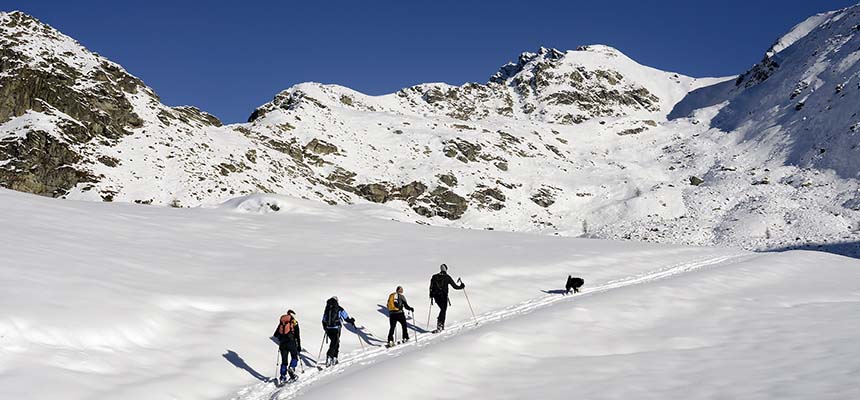Six Reasons To Expect The Unexpected On The Slopes This Ski Season

Are you planning your next winter sports adventure? As the first uninterrupted ski season since 2019 creeps upon us, travel agents have reported a peak in bookings, and in some cases, surpassing pre-pandemic levels. While this is great news for the industry, there are signs that the slopes this season may differ from previous years, making a winter sport break a slightly different experience. This is due to a variety of reasons including climate change, the cost-of-living increase, resort rules and more. We’ve put together a list of reasons to expect the unexpected on the slopes this ski season – so keep reading to find out how you can get prepared for a potentially different holiday on the slopes.
Slower ski lifts and fewer Christmas lights
With the current energy crisis having a prominent impact on our bills, businesses, including ski resorts, are facing challenges due to being heavily reliant on gas and electricity for everything, from ski lifts to heating and lighting for facilities. As resorts reduce their energy consumption, this may have a slight impact on the overall ski experience. For example, the head of Domaines Skiables de France (DSF) – the umbrella group in charge of French ski resorts – has considered slowing down ski lifts due to it having a low impact on customers and only adding an extra minute to the time it takes to get to the top but saving a helpful 20% of energy usage. In addition to this, resorts such as Avoriaz near Chamonix plan to forgo Christmas lights this year to help lower the cost of energy. While all these potential changes only have a slight impact on the overall ski holiday experience, being aware of resort changes means you can be prepared and not be suddenly surprised!
A shorter season due to a lack of snow
It appears that climate change has caught up with winter sports, as multiple resorts have reported a lack of snow which has directly impacted the duration of trips and the overall length of the ski season. New Zealand’s Turoa skiing area has had to close early due to snow melting, and resorts in North America have been forced to postpone their opening due to warmer weather. The warmer climate has even impacted the use of snow machines in some destinations, which are only effective at lower temperatures. In Europe, higher altitude Swiss resorts have pushed back their official opening date until lower temperatures arrive. With all of these climate issues impacting the ski season, it is important to do your research before you book your holiday and make sure that the recent you want to go to is actually open for visitors and what plans they have in place, should there not be enough snow fall during your visit.
The cost-of-living crisis
Prices are on the rise across all of Europe (as we know), forcing ski resorts to increase their prices. With a 15% rise in everyday essentials in some place, even self-catered trips can be expected to be more expensive when it comes to stocking up the fridge. The price of ski lift passes is also on the rise due to resorts raising their costs to compensate for large energy bills. So, we recommend weighing up your options and finding the best deal for you and your budget, before heading away on your next trip.
A change in local rules
Are you travelling with someone under the age of 18? Did you know it’s compulsory to wear helmets on the slopes and carry personal identification at all times? The rules and safety precautions change often with yearly reviews at most resorts, so it is important to educate yourself on the regulations before arriving at any resort to be prepared.
So, researching your resort ahead of time can save you the surprise of not being allowed to share slopes with snowboarders, take on off-piste skiing, even if you’re an experienced skier, or simply not be allowed on the slopes due to not having the correct identification on you. Either way, it’s important to check any local rules to the resort that you plan to visit. It’s also worth knowing that, in most cases, if you are unable to take part in your activity due to not having the correct information to hand, it’s unlikely that you’ll be covered to claim for any associated lost costs from your travel insurance – so something to be aware of!
Don’t forget your mask!
After the COVID pandemic, many European countries still require you to wear a mask during both public transport journeys, health centre visitations and hospital visits. And in case of mask-wearing being reintroduced while you’re on your trip, it is a good idea to take a mask in your suitcase, so that you can keep yourself and others safe, and not find yourself disobeying local guidance.
Don’t get caught out with the wrong travel insurance
Dogtag travel insurance offers specialist travel insurance that can you on your next adventure. No matter if you love to take part in ski racing, snow parascending or are just getting started on the slopes, opting for specialist insurance will give you more suitable protection to your travel needs. We cover over 450 different sports and activities so you can travel with peace of mind knowing that we’ve got you covered. You can find out more about our Ski Travel Insurance or browse a full list of all the sports we cover using the buttons below.
